Think you don’t have to worry about Vitamin B12 deficiency because you are living in a place like the United States?
Think again.
It’s been estimated (by various medical research journals) that the rate of Vitamin B12 deficiency approaches 40% (depending on the study you look at (1)).
And this number is catching only those with a GROSS vitamin B12 deficiency and not those with SUB-OPTIMAL B12 deficiency.
A gross deficiency is an obvious B12 deficiency that shows up with low-range lab tests.
This is actually fairly common but not as sinister as those with what I call sub-optimal B12 deficiency.
Sub-optimal B12 deficiency is someone who is walking around with a low-normal B12 level (which is still technically in the normal reference range) but who is also experiencing mild to moderate symptoms of B12 deficiency.
These people are often missed by doctors and lab tests (which we will talk about later) because they are “technically” normal by standard lab ranges.
And, by the way, this problem gets WORSE if you have other hormone imbalances (such as thyroid disease (2) and diabetes (3)), if you are stressed out from life, or if you are eating unhealthy/processed foods.
All of these things INCREASE the demand for Vitamin B12 in your body and actually accelerate B12 deficiency.
Before we talk about testing and treating B12 deficiency let’s first talk about the symptoms associated with this condition.
Any or ALL of the following can be a sign that your body isn’t getting enough Vitamin B12:
- Fatigue/low energy/weakness – The fatigue experienced in vitamin B12 deficiency is usually sustained and low throughout the day. It typically does not fluctuate like other types of fatigue (think of adrenal fatigue). Advanced B12 deficiency can actually cause muscle weakness as well which should be differentiated from low energy states.
- Hair loss (4) – Even low levels of B12 can contribute to hair loss! This usually shows up as more hair loss during your showers or thinning of your hair slowly over time.
- Weight gain – Low B12 can lead to weight gain as it affects your metabolism. This can lead to a slow and steady weight gain over time. In addition, it can also prevent you from being able to lose weight even if you are using diet and exercise.
- Brain fog – Low B12 can make it difficult to concentrate and can cause brain fog.
- Depression (5) – Low B12 also contributes to depression and depressive symptoms. Depression from B12 occurs without ANY stimulus (meaning you don’t have a good reason to be depressed).
- Numbness/tingling – Numbness and tingling are later signs of B12 deficiency but can come and go in the early stages.
- Tongue changes – B12 deficiency can cause an enlarged or “beefy” tongue as well as change how you taste certain foods. This is typically a later finding.
- Constipation – If you are experiencing worsening constipation, slowly, but over the course of months then it may be due to low B12.
- Heart palpitations (only if severe) – If you have a severe deficiency you may start to notice heart palpitations, these can come and go or persist during exercise.
- Anemia (6) (only if severe) – Lastly, a late finding of B12 deficiency is anemia. This type of anemia occurs as your red blood cells enlarge.
You will notice that MANY of these symptoms are what we call non-specific or very general.
This is what can make vitamin B12 deficiency so difficult to diagnose.
But, in my experience, these symptoms tend to occur over a set period of time (usually months to years) and slowly progress and get worse.
If you notice that over the last few years you just aren’t feeling as good as you would normally or that your symptoms are all just getting worse then that may be a sign of B12 deficiency.
Testing for Vitamin B12 Deficiency
One of the biggest struggles with diagnosing vitamin B12 deficiency is the fact that the lab tests are just not that accurate (7).
And this information doesn’t come from me, by the way, it comes from medical research studies.
Having said that, you should still be aware of the lab tests used to diagnose B12 deficiency and what type of information they actually give you:
- Serum B12 level – This is probably the LEAST accurate of all B12 tests and doctors know this. But even though they know that the serum B12 is inaccurate they still use it and base treatment on the result. Do NOT fall into this trap. Serum B12 only tells you how much B12 is in the bloodstream but it doesn’t say anything about how much is activated and can be used by the body.
- Methylmalonic acid – This test is a good test for assessing if your body can utilize the B12 in your bloodstream. If your methylmalonic acid is high then it indicates that your body cannot use B12 which means you might be deficient. But even though this test is better than serum B12 it is still not perfect and does not always guarantee that you have B12 deficiency.
- Homocysteine (8) – Homocysteine can be used as a marker of B12 deficiency because as your body uses B12 it breaks down homocysteine into cysteine. If your homocysteine level is HIGH then it means you may not be breaking down enough B12.
- MCV (9) – This test stands for mean corpuscular volume and is a test that gives you an idea of how LARGE your red blood cells are. Vitamin B12 deficiency is one of a few things that cause your MCV to go higher which means it can be used as a sensitive marker for B12 deficiency. Unfortunately, it isn’t perfect either. Look for an MCV value that is LESS than 90.
If this is sounding a little bit confusing then you aren’t alone.
One of the MAIN issues with diagnosing B12 deficiency is the simple fact that we cannot rely 100% on lab tests.
I know many patients and many doctors who base all of their treatment decisions on these tests when they are not even accurate!
So what are you supposed to do as someone who just wants to feel better?
Your best bet is to get the lab tests listed above (you want to get them because they are potentially helpful) but base your decision on whether you should use B12 on your SYMPTOMS.
If your symptoms are suggesting that you have B12 deficiency then RELY on those instead of your lab tests.
I’ve seen so many patients who feel terrible but have normal “B12 lab tests” but who respond great to Vitamin B12 supplementation.
Don’t let an inaccurate lab test dictate how you feel.
And what’s even more interesting is that many medical research studies actually suggest this very same approach.
They agree that testing for B12 deficiency is both inaccurate and expensive so the best course of action is to just supplement if you feel you have a deficiency.
Treating Vitamin B12 Deficiency
If you want to act as if you have a B12 deficiency and treat the problem then there are a few things you should know.
FIRST…
Most of the over-the-counter supplements out there contain the WRONG type of vitamin B12.
Using this type of B12 will NOT help your body because a large percentage of people cannot utilize it.
You will want to buy a B12 supplement that contains a pre-methylated or pre-activated form of B12 to ensure that your body skips the activation process.
You will want to use one of the formulations found below:
- Methylcobalamin – Pre-methylated and pre-activated and safe to use with MTHFR defects.
- Hydroxycobalamin– Pre-methylated and pre-activated and safe to use with MTHFR defects.
- Adenosylcobalamin– Pre-methylated and pre-activated and safe to use with MTHFR defects.
AVOID B12 supplements which contain cyanocobalamin.
You can tell which formulation your B12 supplement has by looking at the nutrition/supplement facts on the back of the bottle.
Look at the B12 section and it should have the type of B12 that it uses in parenthesis.
It will say something like “Vitamin B12 (as methylcobalamin)”.
If it says any of the approved formulations above then you are good to go.
If it says “Vitamin B12 (as cyanocobalamin)” that is an indication that you are taking a cheap form of B12 which is probably not working in your body!
Or at least, there is a 40% chance that your body is not really able to utilize it (which are not great odds).
Why can’t these people utilize B12?
Because they contain a GENETIC MUTATION known as the MTHFR defect.
This genetic mutation is found within around 40% of the population and it impacts how your body METABOLIZES B12.
Those with this defect are not able to break down B12 into the active form as well as people who don’t have it.
Because of this, formulations with cyanocobalamin simply build up in their system without being active.
So their lab tests will read as “normal” but their cells aren’t actually getting the benefit of the B12.
Because of this, I recommend that you just AVOID these formulations of B12 and stick to the ones that are already pre-methylated or pre-activated.
Yes, you will have to pay a little bit more money but it’s worth it because you will actually be able to feel better and use the vitamin instead of just eliminating it!
Final Thoughts
Treating and diagnosing Vitamin B12 deficiency is not hard!
If you have the symptoms then you should get your lab tests and consider using a B12 supplement.
With how cheap and effective B12 supplements are, and with how common B12 deficiency is, it’s probably a good idea to start supplementing as a trial to see if you start to feel better.
In my experience, MOST people reading this (especially those under stress) will benefit from using Vitamin B12.
Now I want to hear from you:
Do you have or suspect that you have Vitamin B12 deficiency?
Do you have the symptoms of B12 deficiency?
If so, which ones?
Have you been tested for B12 deficiency? Was the testing accurate in your case?
Keep the conversation going by leaving a comment below!
Scientific References
#1. https://www.ncbi.nlm.nih.gov/pmc/articles/PMC3168103/
#2. https://www.ncbi.nlm.nih.gov/pubmed/18655403/
#3. https://www.ncbi.nlm.nih.gov/pmc/articles/PMC3649932/
#4. https://www.ncbi.nlm.nih.gov/pmc/articles/PMC6380979/
#5. https://www.ncbi.nlm.nih.gov/pmc/articles/PMC3856388/
#6. https://www.ncbi.nlm.nih.gov/pubmed/12643357
#7. https://www.ncbi.nlm.nih.gov/pmc/articles/PMC3827408/
#8. https://www.ncbi.nlm.nih.gov/pmc/articles/PMC1283514/
#9. https://emedicine.medscape.com/article/203858-overview
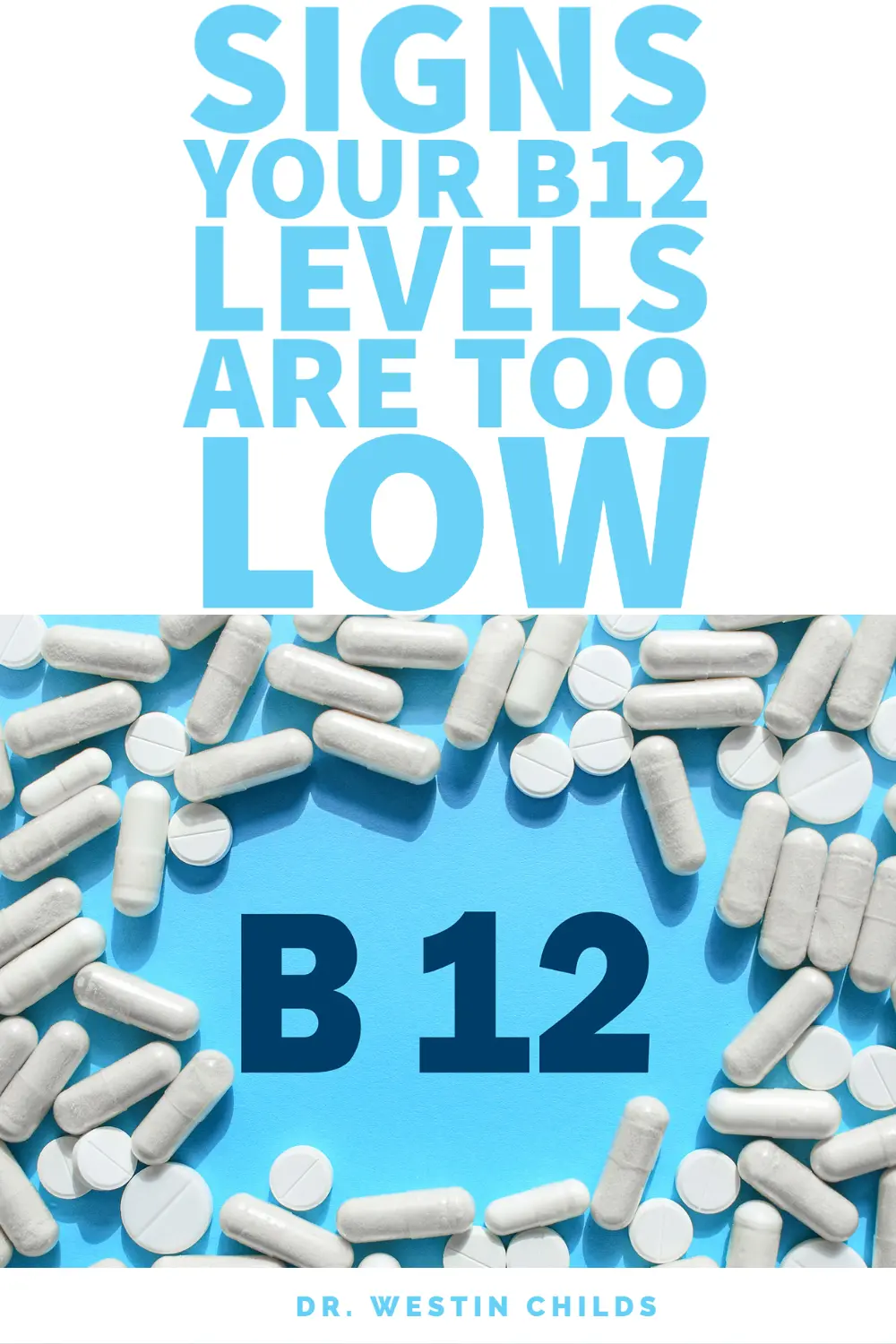
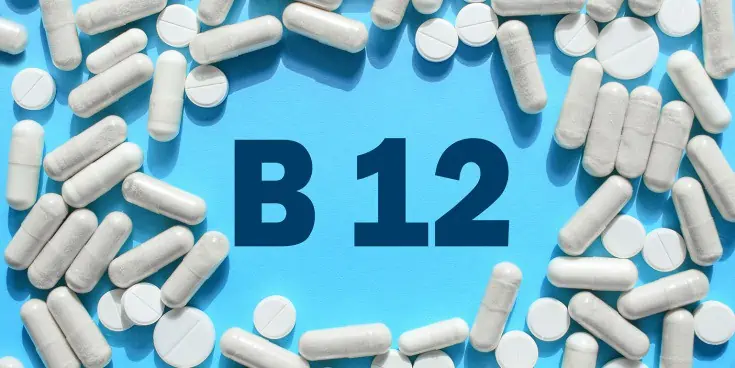

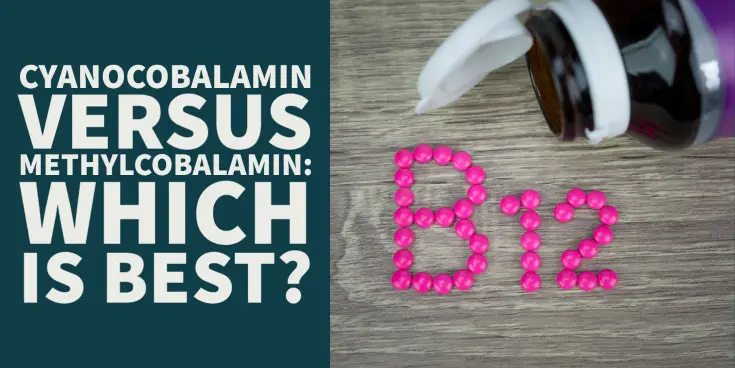
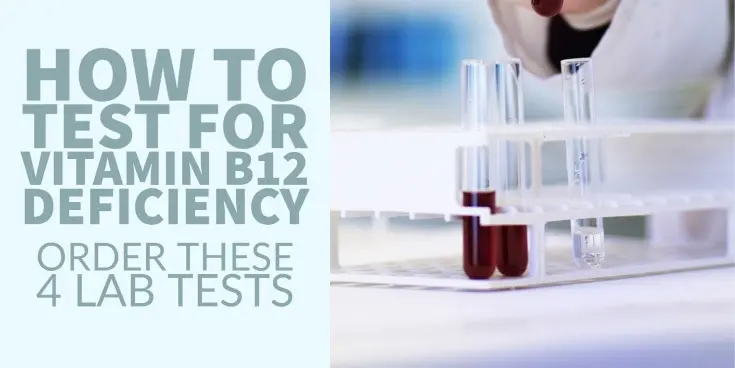
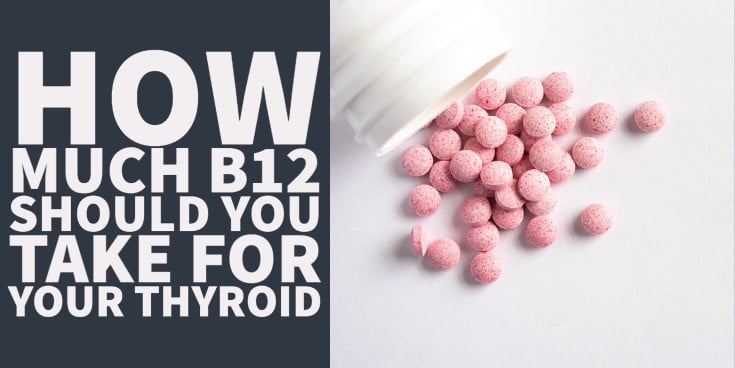
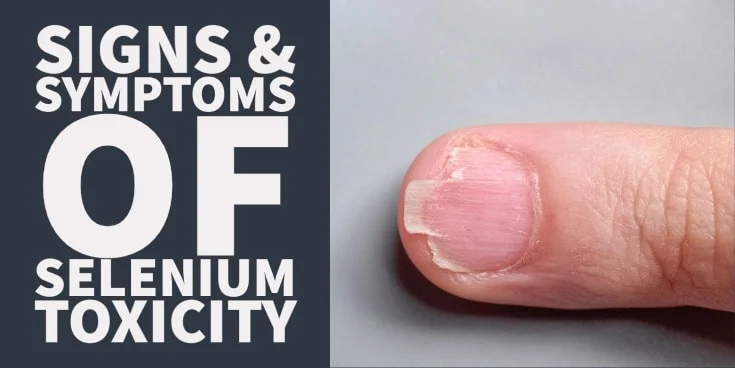
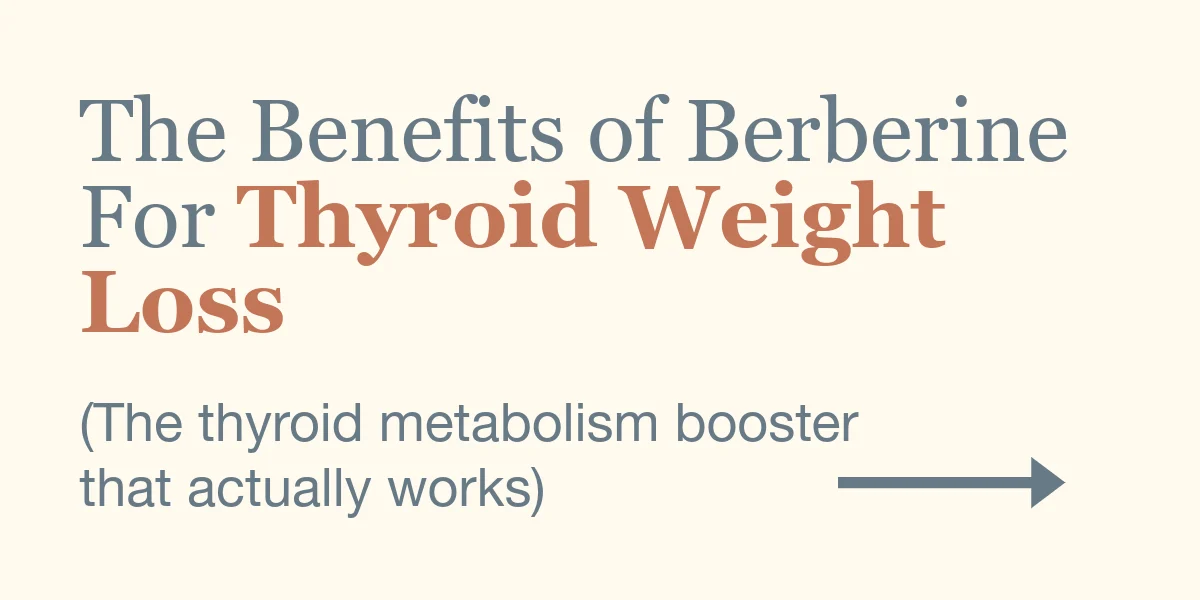

Dear Dr. Childs, I loved your information on Vitamin B12 I really think I need to get tested… I am in Sydney Australia my GP has never had me tested for B12…is there a Doctor you can recommend to me…I feel awful all the time I have an underactive thyroid and I can’t lose weight…hoping you can help me …with warmest wishes Trish.
Hi Trish,
Unfortunately, I don’t know anyone in that area but getting the test should not be difficult! Be sure to get the other tests I included in the video as well.
I have 2 questions – I’m hypothyroid.
I’m on Levothyroxine and T3. My last blood work my TSH was
0 .37 and my free T3 was 3.5 ( she wouldn’t test for reverse T3 said it was only for if you have a chronic illness) Do you think the TSH is too low? I’m going to try and find other dr if it is.
Can these valves cause me to wake up 10-12 times a night? Dr said I need to see a sleep therapist.
B12 was at 76 (tingling, numbness, fatigue, depression…) RBC never got bigger so B12 was undetected for too long: Got aplastic anemia due to this.
Was given Cyano shots, symptoms still persited. Levels were at 146 after 8 shots in 2 months.
After 4 years, serum levels are at 600 but symptoms come and go. (FIY: EBV when younger and Hashimoto’s).
Only way I get a relief is by using methyl tabs under the tongue along with my montly B12 cyano shots.
Will get tested for MTHFR, Methylmalonic acid, MCV and Homocystein…
Hi Isabelle,
It would be better to get methylcobalamin injections over cyanocobalamin.
If you are deficient, how much vitamin b12 should you be taking orally daily.
Hi Angela,
It depends but somewhere between 1,000mcg and 5,000mcg per day.
I supplement 1000mcg of b12. How often should I have blood test and should I stop supplementing for some time before blood test? Also there is a test called active b12. Is that better than the standard serum b12 test?
Despite being on a healthy diet that they say should be sufficient to cover all my needs, my serum B12 was 265 pg/mL (normal range: 250 – 900 pg/mL). I didn’t realize it at the time, but I was having what I now know to be symptoms of a B12 deficiency. Primarily these were related to brain fog, numbness/tingling in my legs and feet. I didn’t find this out from my physician, because very little attention is paid to an issue until results are significantly out of range, whether it be too high or too low. This was long before my hypothyroidism. I know these symptoms were related to B12 because they went away not long after I began supplementing daily with 5,000 mcg Methylcobalamin (sublingual), and any time I’ve neglected to supplement, they come right back and my values drop by literally hundreds of points at a time.
Within a few short months my B12 level had increased by several hundred points. This was years ago, and I still supplement a couple of times a week to maintain. Fortunately I’ve found it to work very quickly. I’ve also found that an optimal B12 is a critical component to getting all my thyroid values to where they should be.
Now I am taking B12 injections twice a week but how and when to test check that my B12 is enough or high so that I can stop taking
injections. Once tested it showed 2000 which means that it is not correct.
Hi M D Vasudevan,
Serum B12 is pretty much useless so it’s better to focus on other markers such as homocysteine, MCV, and methylmalonic acid. It’s also pretty much impossible to overdose on B12 as long as your kidneys are working.
Doctor Childs
I have Been diagnosed severe case of combat P TSD from several tours in Iraq Panama and Grenada
I’ve been researching reasons why my body constantly has severe muscle cramps from my hands to my legs to my feet to my back to my neckI came across the article indicating Amy I may have AB12 deficiency Reading through your tutorial I meet more than 90% of the criteria
and symptoms for B12 deficiency. The symptoms have been going on for a number years at least 10 plus Years When I retired from the service or get out of the service and followed up with the Gulf war registry about the headaches in the constant fatigue and the rashes and those symptoms just progressed in the more and more symptoms than other symptoms there are symptoms and then the cramps the weight gain over the years unable to eliminate the weight gain my appetite has is shrunk too maybe if I’m lucky a meal A-day or a meal every 2 days
I get or receive my care through the VA system in New Hampshire And I have complained numerous times about the muscle aches the fatigue the constant constant tiredness Which my test results indicate that my B12 levels are normal but in your case you’re saying that the tests that are being performed are not accurate Could you send me a list of the type of B12 that I need to forward to my physician and try to get them to order the B12 through my pharmacy
Hi James,
Of course, you can find all of the tests that you need here: https://www.restartmed.com/how-to-test-for-vitamin-b12-deficiency/
I live in the Dominican Republic so this is more challenging. I have a thyroid condition from covid that is under control. Symptoms are getting worse but the “numbers” are good. I am severely B12 deficient and was just prescribed weekly injections. The formula contain both (in Spanish) Cianocobalamina B12/12,500 mg and Hidroxocobalamina B12/ 12,500mg. Close enough to English to know which ones they are. You artical indicates to look for one and avoid the other. What do you think of the formula? – I may be able to buy another type off the internet. I really need and appreciate your help – “Thanx”
Hi Robert,
As long as you are getting hydroxycobalamin then you are getting at least some of the correct form.
II just had blood work done and my B12 was really low, I looked at the vitamin i am taking, and it does have cyanocobalamin in it. I am using “nature Made Brand”. What is a good brand over the counter I can use? The pill I am using is !000 mcg
Hi Otto,
I recommend my own B complex but if you don’t want to use that one then look for one that has similar ingredients: https://www.restartmed.com/product/power-b-complex/
I cant absorb b-12 because of a surgery i’ve had. My levels are around 140. Can hand tremors and calf twitching be a symptom of low b-12?
Hi Fred,
Vitamin B12 shots will solve that issue! You can learn more here: https://www.restartmed.com/b12-shots/
It’s possible your other symptoms could be related to your B12 status but they could also be related to a lot of other issues. Hard to say without a lot more information.
I have autoimmune gastritis, Antiparietal Cell Antibody at 126.1 and Hashimotos ( high antibodies and very symptomatic) with normal T3 and T4 function. My intrinsic factor testing is always normal, also all the labs related to Vitamin B12 are normal, but I am very symptomatic of a B12 deficiency. Could the vitamin B12 absorption be caused by the autoimmune gastritis and could treating the autoimmune gastritis help with Hashimotos? I have had H. Pylori several times and also had Hep C during childhood ( no longer have viral load but antibodies).
Hi Elina,
Yes to all three questions. If you aren’t already then you may want to try B12 shots as that will bypass the absorption issue.
I have been researching reasons I feel fatigued, light headed, tingling feet and hands, etc. and have narrowed it down to maybe vitamin B12 deficiency. I have gone for several tests, cardiologist, etc. and no indications of problems. I do have hemochromatosis though and currently my ferritin levels (after infusions) is around 50. Will B12 have a negative effect?